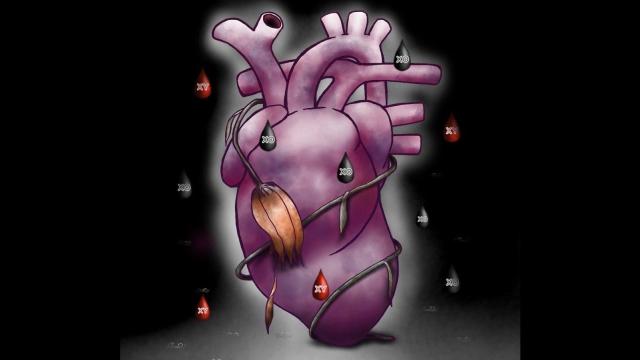A common mutation in older men may make them more likely to suffer life-threatening heart problems. New research in both mice and men suggests that the loss of the Y chromosome in cells can trigger tissue scarring that can lead to organ failure. The findings may one day allow for better screening of heart and other chronic diseases in men, as well as targeted treatments for men who experience the loss of Y chromosome.
Most human cells carry 23 pairs of chromosomes — threadlike bundles of protein and genetic material that carry the instructions for how cells should function and make more of themselves. Twenty-two of these pairs contain basically identical copies of each chromosome. But one pair can contain a slightly different chromosome from the other, which we distinguish as X and Y, and these chromosomes play a pivotal role in determining biological sex. Most people with XX chromosomes have female reproductive anatomy and identify as women, while most with XY chromosomes have male reproductive anatomy and identify as men (as with everything in nature, of course, there are exceptions).
As XY men get older, though, some of their cells — especially blood cells — can develop mutations that cause them to lose the Y chromosome, which is known as the mosaic loss of Y. Over 40% of men by age 70 might experience this condition, and it may actually be the most common mutation in humans to be acquired later in life. Important as the sex chromosomes are to our development, they’re not essential to the survival of somatic cells (the cells that aren’t sperm and eggs), so these Y-less cells can still function and divide in the body. But in recent years, evidence has been building that the loss of Y isn’t harmless. Studies have suggested, for instance, that men with the condition have shorter life spans.
This new research, published Thursday in Science, seems to offer the best evidence yet that the loss of Y can come with serious health consequences.
“A major unaddressed question was whether loss of the Y chromosome was playing a direct causal role in the pathological process. For example, it had been argued by some that loss of Y was a benign indicator of biological ageing, like grey hair or skin wrinkles,” study author Ken Walsh, director of the University of Virginia’s Hematovascular Biology Centre, told Gizmodo in an email. “Thus, we conducted a multifaceted study to address whether loss of Y had a direct role.”
Walsh and his colleagues, which included researchers from Japan and Sweden, bred mice engineered to lose Y in their blood cells as they aged. And just as the earlier research in men suggested, these mice lived shorter lives and developed more health problems than mice with their Y intact. When they looked closely at the bodies of these mice, the team noticed fibrosis, or a build-up of scar tissue, throughout their hearts, kidneys, and lungs. And they found evidence that the loss of Y had influenced the behaviour of white blood cells, possibly shifting the immune cells into an “anti-inflammatory state” that can trigger this scarring process.
Aside from studying mice, the researchers also analysed data from the UK Biobank, a long-running longitudinal study that’s been tracking the health of tens of thousands of Britons. And in older men, they found a link between the loss of Y and a risk of cardiovascular disease, particularly heart failure.
All together, the team’s research indicates that losing Y can cause men’s ageing hearts to become more scarred than usual. And this scarring can then heighten the risk of non-ischemic heart failure, or heart failure that’s not caused by the blocking of our arteries. Though non-ischemic heart failure isn’t as well-known as the more classic form, it’s still thought to affect 3 million Americans, and it’s harder to manage with few treatment options, Walsh points out.
“The new insight is that we provide compelling data indicating that loss of Y can directly contribute to disease processes,” he said.
As important as this study is, it’s likely to only be the beginning of understanding the connection between the Y chromosome and men’s health. More research will be needed to confirm the team’s hunch that the loss of Y is specifically raising men’s risk of non-ischemic heart failure, for instance. Given the data in mice, it’s also possible that losing Y can affect the body’s organs in other ways, too.
But if these findings are confirmed, then it could provide new avenues for prevention and treatment. Men could be screened for the loss of Y with a relatively simple PCR test, Walsh notes. And those with high levels of Y loss could then undergo additional tests like MRI scans to look for scarring. There are also already existing drugs for scarring-related disorders and more in the development pipeline, so men without Y might especially benefit from these treatments. And simply learning more about the loss of Y might one day help keep us alive and healthy longer, Walsh adds.
“Foremost, we need to define the genes on the Y chromosome whose loss leads to these disease conditions,” he said. “Once these genes are identified we can conduct deeper mechanistic studies that may reveal new features of disease processes, and biological ageing process itself, and that could lead to the development of new therapies to combat the diseases of ageing.”
